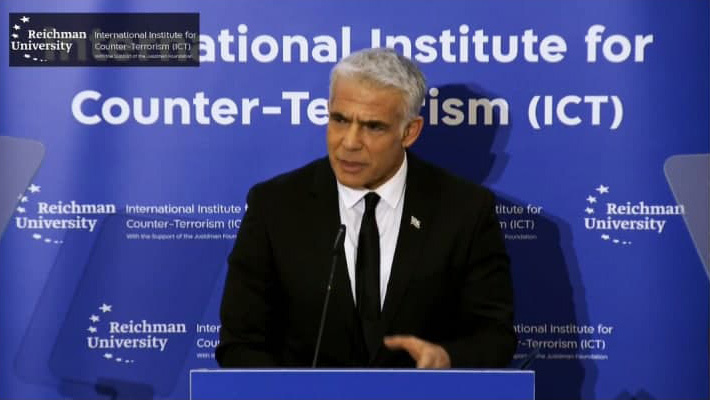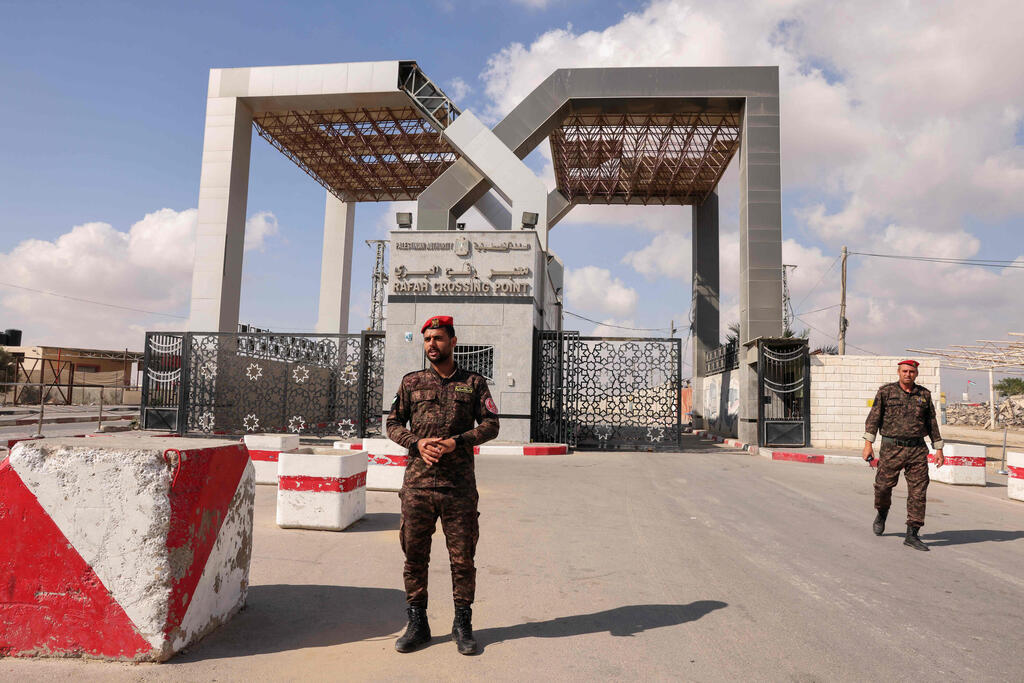Getting your Trinity Audio player ready...
Foreign Minister Yair Lapid on Sunday presented his vision for a long-term settlement between Israel and the Gaza Strip.
Addressing a conference of the International Institute for Counter-Terrorism at Reichman University in Herzliya, the Israeli top diplomat called the outline — dubbed "Economy for Security" — a "more realistic approach towards reconstruction [of Gaza] in exchange for disarmament [of Palestinian enclave's terrorist groups]."
3 View gallery


Foreign Minister Yair Lapid addressing the International Institute for Counter-Terrorism at Reichman University on Sunday
(Photo: Go-Live)
He stressed that he was not calling for negotiations with Hamas, as "Israel doesn't speak to terror organizations who want to destroy us".
Lapid has presented this proposal to several international officials — among them U.S. Secretary of State Antony Blinken, Russian Foreign Minister Sergey Lavrov and EU and Gulf representatives.
His presentation came fresh on the heels of Gaza terrorist factions launching rocket attacks into Israel in solidarity with four Palestinian prisoners caught over the weekend of six who escaped a high-security prison in northern Israel last week. In both instances, the IDF retaliated with airstrikes on Hamas targets in the enclave.
The plan consists of two phases.
3 View gallery


Destroyed houses following Israeli airstrikes in the town of Beit Hanoun, northern Gaza, May 14, 2021
(Photo: AP)
The first step would include an overhaul of Gaza's electricity, health and transportation systems in exchange for Hamas ceasing its military build-up. During that time, Israel would maintain full control of electricity and water supplies into Gaza, but the Western-backed Palestinian Authority (PA) would resume control over Gaza's border crossings.
"The international community would have to use its influence to guarantee calm and stop Hamas from arming itself, including preventing smuggling [of arms] and creating a monitoring mechanism to stop humanitarian funds from falling into the hands of a terrorist group that threatens Israeli civilians," Lapid said.
Lapid specified precise milestones for each part of the first phase to which Hamas will have to adhere, risking restarting the process in case the terror outfit fails to comply.
3 View gallery


Palestinian security forces stand guard at the closed down Rafah border crossing to Egypt in the southern Gaza Strip
(Photo: AFP)
The second phase, which is planned to begin after an unspecified period of calm, would include major infrastructure projects in the Palestinian enclave, including the construction of a seaport, connecting the Strip to the West Bank and encouraging international investment in the local economy. At this point, the Palestinian Authority would regain full control of Gaza's civil and economic affairs.
Lapid said that Prime Minister Naftali Bennett and Defense Minister Benny Gantz "know this position and support the principle which stands behind it."
"There is still work to do, we're still on the drawing board, but if this plan has a chance to succeed and gains widespread support, I'll propose it to the government as the official position," he said.

